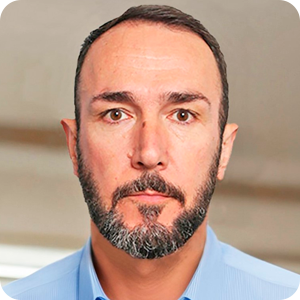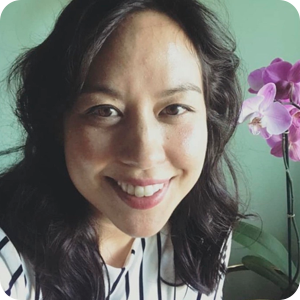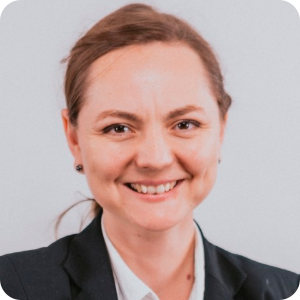The Organization for Economic Cooperation and Development (OECD) has the aim of improving existing economic and social policies in order to create more sustainable outcomes and improve lives. As one of the most prestigious organizations in its field, the competition to land a job there can be very intense. The organization, which currently has 38 members, has around 100-150 job openings per year and hires from its member countries. Due to the relatively small number of openings and high number of applications, it is recommended that candidates are fully prepared before applying for a position. There are various roles to consider which require different sets of skills and experiences. With proper preparation, relevant advice, and hard work, the perfect application “recipe” can be created to successfully pass the recruitment and hiring stages and join the organization. We asked DevelopmentAid members who previously worked with the OECD to share some insights and recommendations for those who aim to win a job with the organization.
Key Takeaways:
- The OECD consists of approximately 3,000 staff members across its 38 member countries and the number of job openings typically ranges between 100 and 150 each year.
- Analytical competencies, the ability to speak multiple languages, relevant studies, good communication capacities, perseverance, and confidence are some of the most important skills mentioned by experts that are necessary to land an OECD position.
- Applying for a position at the OECD can be a competitive process, with the response often arriving 6 months after submission of the application.
- Working at the OECD offers the opportunity to work on globally relevant issues, enhancing the successful candidate’s professional resume and expertise.
- Among the challenges mentioned by experts, bureaucracy and rigidness are mentioned most often.
DevelopmentAid: What major skills and requirements are necessary to start a career at the OECD?

“Probably the single most important personal capacity is confidence in one’s own abilities, as you will be surrounded by capable and well-educated colleagues. In analyst positions, your analytical and drafting skills will be critical. You will also need to be socially intelligent to understand the needs and intentions of a very diverse group of people that you will be working with and encountering on a daily basis.”

“I would say that the skills and requirements are clearly stated in every job description. It is a highly competitive environment so if you do not have the skills listed as such, it is not an ideal fit. Most professional posts require a bachelor’s or master’s degree and in many economic-related positions a PhD as well. Read the job description carefully before tailoring your resume!”

“Perseverance, knowledge of several languages (Romanian, Russian, and English in my case), knowledge of MS Office suite, and ability to navigate and understand the country’s policy documents and relevant studies. An ideal candidate should also be able to liaise with the necessary stakeholders and establish the necessary connections, identify the key facts and find the required data from various organizations and reports, and understand the reasons for missing data.”
DevelopmentAid: What are the challenges to be faced when applying for a position at the OECD?

“It’s a long and tedious process, so you need to be armed with patience, but also be smart in your choice of words, presentation, CV formatting, preparation for the written test, etc. Making good use of the information on the process that is available on the internet is a good start, as long as it doesn’t make you feel anxious.”

“Competition is limited to candidates from OECD countries only unlike the other international organizations. However, as the OECD is a renowned organization, and quite a prestigious one, the competition among applicants is very high. Furthermore, the hiring process is long – it is not uncommon to apply for a job and not hear anything for six months.”

“For me, working in a multinational environment was quite difficult to adapt to. Also, one should be prepared to work overtime when collecting and assessing data, to be flexible when establishing and running meetings, and have strong analytical thinking.”
DevelopmentAid: How can you prepare for an OECD interview?

“The OECD uses the “competence interview” approach, which is a rather standardized approach to the job interview, relying on similar questions and asking for a similar type of answer. This means that one can prepare quite well for most of the questions that will be asked, which makes interview preparation especially important. Another often overlooked aspect of the OECD interview is that the questions are bound to be related to the competencies that are already listed in the vacancy post/job description. So, the applicants can use this as additional guidance with regard to what they will be asked about.”

“Ensure that you know what the department you are applying to has done in the past and how you would add value to the future publications, research or outputs. A team needs to see how your presence will add value and intellectual rigor.”
DevelopmentAid: What are some mistakes that junior development professionals make when applying for an OECD position?

“Junior professionals tend to exaggerate their experience and use unrealistic examples of their accomplishments. It is much better to talk honestly about your experiences, insist on your willingness to learn and openness to new opportunities and challenges and point these out in your CV. There is no shame in being at the beginning of your career but you want to project an image of a hardworking person who is aware of their lack of experience and eager to learn.”

“Junior professionals apply to every open position! Apply to jobs you are qualified for and hope for the best. OECD is not the only international think tank, and you may miss out on another opportunity by only focusing on one organization or department. Keep an open mind.”
DevelopmentAid: What are the main challenges and benefits of working for the OECD?

“It allows one to work on real-life problems in an organization that is treated as globally relevant by key stakeholders. It also makes one’s efforts relevant, boosts your professional resume, and allows you to perfect your domain expertise. Maybe most importantly, it allows you to see how things really work in terms of policy making on the large international scene.”

“Because it is an organization funded by member countries, it can be incredibly bureaucratic. This is something you have to work with and not try to resist. It is similar in many international organizations. The benefit of working for the OECD is the network you can create and what you learn from working with some incredible teams that have a vision and believe in the mission.”
It is said that luck is when preparation meets opportunity. If candidates already possess a variety of skills, are hardworking, and are prepared to make an impactful change in the world, the DevelopmentAid platform might just come in handy. On the website, experts can choose from over 6000 open positions. With the Individual Professional Membership, members can access all these opportunities and check for assignments on the OECD donor page. Additionally, members receive full access to tenders and grants for individuals, contact information for over 300,000 organizations in international development, and increased exposure for their profiles.

